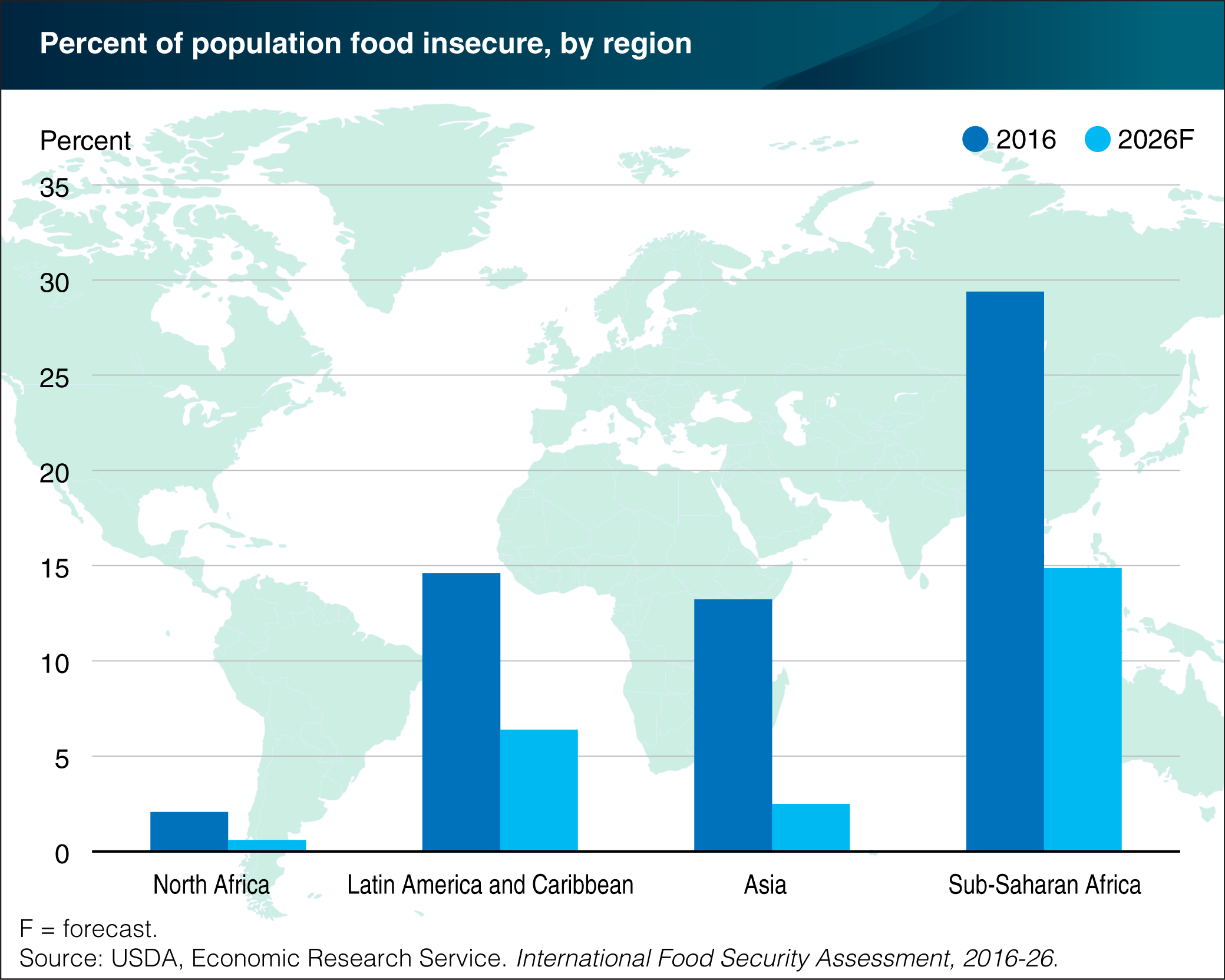The share of world population that is food insecure is projected to decline
- by Stacey Rosen, Karen Thome and Bong Joo Lee
- 7/11/2016

The latest International Food Security Assessment suggests food security will improve over the next 10 years for the 76 low- and middle-income countries examined by ERS. The improvement is driven by expectations of falling food prices and rising incomes across most of these countries. The share of the total population within these 76 countries that is food insecure is projected to fall from 17 percent in 2016 to 6 percent in 2026. The report estimates per capita food consumption and evaluates that against a nutritional target of 2,100 calories per person per day to determine whether population groups should be considered food secure. At the regional level, the greatest improvement in food security between 2016 and 2026 is projected for Asia, where the share of population that is food insecure falls from 13.2 to 2.4 percent. The share of population that is food insecure in the Latin America and the Caribbean region is projected to fall from 14.6 percent in 2016 to 6.4 percent in 2026. Sub-Saharan Africa is the most food-insecure region in the world, and like the other regions, its food-security situation is projected to improve over the decade—but at a slower rate. The share of the region’s population that is food insecure is projected to fall from 29 to 15 percent. This chart is from the ERS report, International Food Security Assessment: 2016-2026, released June 30.
We’d welcome your feedback!
Would you be willing to answer a few quick questions about your experience?

